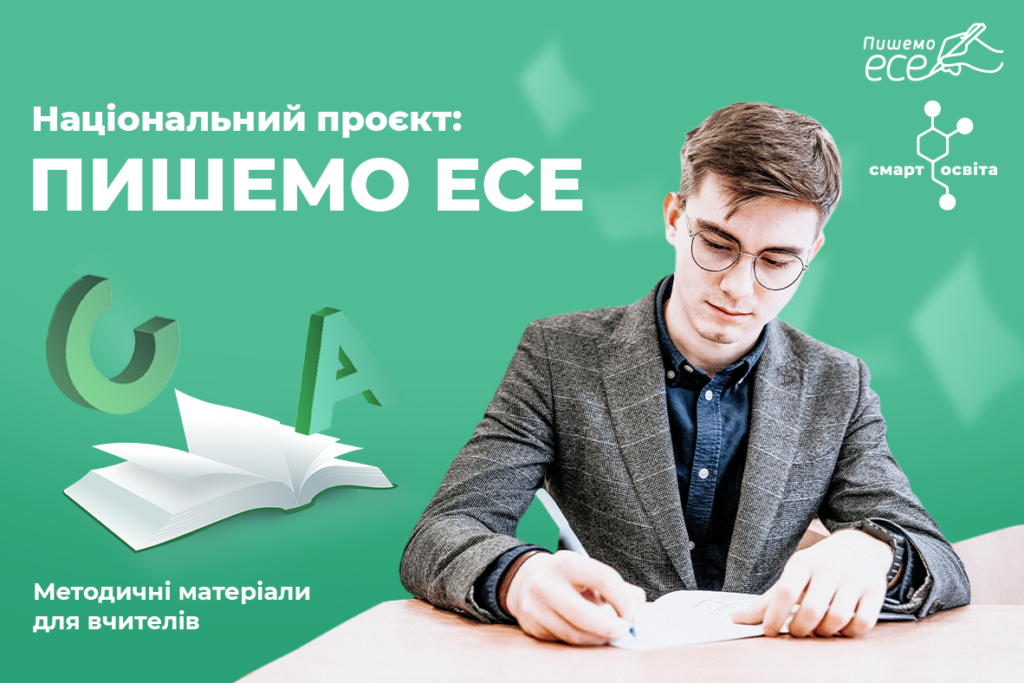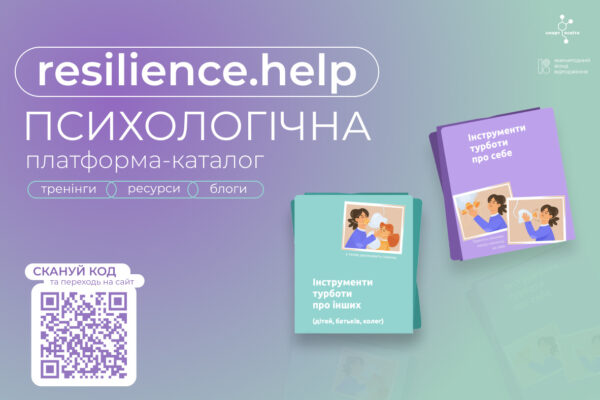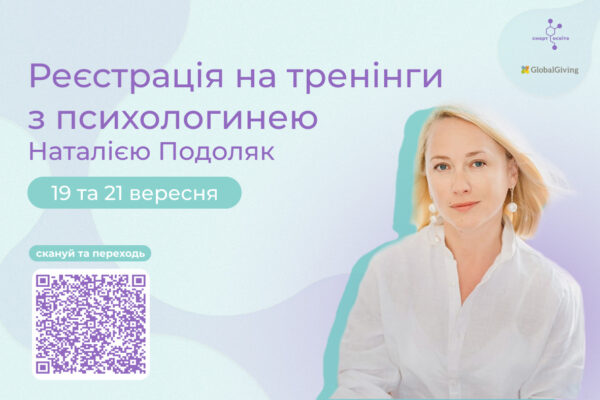

The “Smart Osvita” NGO publishes open-access materials to develop writing, critical thinking, and reading literacy skills for elementary and high school students.
These materials are created by a team of developers based on tools provided by the National Writing Project (NWP). This 50-year-old American organization brings together school teachers, university professors, researchers, and writers.
The materials provided by NWP are effective in teaching formal essay writing. They have been used in US schools for over 10 years. Teaching using these methods improves students’ ability to select evidence from sources to support their theses, structure the text, and formulate an opinion logically and rationally.
The development team of the “Smart Osvita” NGO (teachers, methodologists, teachers of pedagogical universities, and IPPE trainers) was trained by American colleagues and national trainers, adapted and modified the training resources to the Ukrainian context, and is now sharing them with Ukrainian educators for free on a specially created page of the “National Project: Writing an Essay”.
The peculiarity of the approach proposed by NWP is a combination of conscious reading of journalistic texts with subsequent argumentative writing. Students read articles, select evidence from the texts, formulate their comments on what they have read, and learn to write formal essays in a structured, logical, and transparent manner.
A collection of several Ukrainian media texts on various topics for younger and older teenagers accompanies each training module.
“We started working on this project before the full-scale invasion, and the first NWP training was supposed to occur on February 24, 2022. Instead, a major war broke out that day, and we postponed the project for almost a year. All this time, our American colleagues have been constantly supporting us with both kind words and their own expertise. This support now extends beyond our circle of developers – we are making our work publicly available. I sincerely hope that the methodological developments will be useful for teachers in teaching their students to write reasoned texts, defend their opinions clearly and logically, and think critically,” says Halyna Tytysh, chair of the board of the “Smart Osvita” NGO and project initiator.
About the learning resource
It consists of the following parts:
- Theoretical part. In it, experts explain the procedural approach to teaching writing, the features of essays, and the specifics of providing feedback. These materials are based on lectures by Olha Bryukhovetska (Ph.D. in Philosophy, lecturer at the Department of Cultural Studies at the National University of Kyiv-Mohyla Academy), Maria Titarenko (essayist, journalist, media researcher, member of PEN Ukraine, Ph.D. in Social Communications, Fulbright Scholar (2008-2009)) and a Joseph Harris (Ph.D., lecturer in academic writing at the University of Pittsburgh, Duke University, University of Delaware, and others. Author of five books and many articles on teaching writing and media studies).
2. Nine training modules that include:
- instructions for organizing lessons with a detailed plan,
- presentations for lessons,
- student worksheets,
- forms for formative assessment,
- collections of texts.
3. Collections of journalistic texts to work with the appropriate methods.
4. Collections of literary texts written for the project by contemporary Ukrainian authors on topics relevant to adolescents.
5. Recommendations for conducting classes based on literary texts. The teacher can use them according to the methodological recommendations or adapt them to the lessons, taking into account the characteristics of the class and their own experience. Approaches include discussions, creative tasks, and analysis of essay types.
“Teaching writing is relevant to students in many ways. For example, we help children write clearly and well for other subjects they study. We also help them develop the intellectual flexibility they need to write successfully in any profession. And, perhaps most importantly, we can show them how to use writing to develop their ideas about issues and texts that are important to them,” – Joseph Harris.
“Smart Osvita” publishes two new training modules every week. The first modules (“Regular Writing” and “Purpose of Texts and Types of Essays”) are already posted on a separate project page – essay.nus.org.ua.
“Writing is essential for learning, critical thinking, and active citizenship. It is the currency of the new workplace and the global economy. But most importantly, writing helps us clarify ideas, solve problems, and understand ourselves and this changing world. Through writing, we can make our mark on today’s world and reach into the future,” – Tom Fox.
The organization plans to start training teachers in methods and tools for teaching writing. Information about this will be published on the “Smart Osvita” website and the “New Ukrainian School” online media.
Context: why these teaching materials are relevant to Ukraine
The results of the External Independent Testing previously demonstrated problems with students’ essay writing skills. During the full-scale invasion, students do not write their essays on the NMT, so there is no data on graduates’ writing ability. But we can safely assume that the situation has not improved; it has only worsened due to stress, the transition to online learning, constant air raids, and the abolition of the requirement to write essays in the new NMT exam form.
In addition, the international comparative study PISA-2022 results show that Ukrainian 15-year-olds have problems with their reading literacy. Since the previous test (PISA-2018), the average score of Ukrainian students in reading has dropped from 466 to 428 points. However, due to the COVID-19 pandemic, all countries participating in the study have fallen back in all literacies tested by PISA to varying degrees.
In 2022, 59% of Ukrainian students reached the primary level in reading, and only 2% achieved the highest level. Of the three areas studied by PISA 2022, Ukrainian teenagers have the lowest results in reading.
Suppose we compare our results with students in the Organization for Economic Cooperation and Development (OECD) countries in terms of points. In that case, our students lag in reading by 48 points (428 in Ukraine and 476 on average in OECD countries). This means Ukrainian students are about 2.5 years behind adolescents in their group countries in reading.
According to the PISA 2022 national report, even the new Ukrainian textbooks have few tasks that develop relevant reading competencies and almost no textual diversity. Tasks in literature textbooks mainly teach how to “identify a topic, idea, or issue,” and often, questions about a text can be answered without even reading it. PISA 2022 found that students have difficulty finding the information they need, making connections between parts of the text, establishing analogies with life experience, using background knowledge when reading, distinguishing between facts and opinions, noticing distortions of facts, manipulations, identifying contradictions, and interpreting what they read.
Since Ukrainian textbooks have very few texts and tasks based on PISA approaches, we have a dead end: the test tests the ability to think critically and analyze what you read, and this can be done most effectively with journalistic texts. How can students learn this when general secondary education does not offer it?
The developed materials based on American methods will help solve these problems: NWP’s educational resources are based on working with collections of journalistic texts.
“Currently, anyone can instantly publish their opinion on social media and make it available to everyone. But when it comes to thinking through one’s position and developing one’s thoughts in depth, it is just as difficult for the current generation to do so as it was for the previous, pre-digital generations. The fear of a blank slate has not disappeared. It will only disappear when writing as a separate form of activity is introduced into school education. Writing is a skill that can and should be taught,” – Olha Bryukhovetska.
All methodological materials are available for free download on the project website.
“The National Project: Writing an Essay” is implemented by the “Smart Osvita” NGO with the support of Grammarly, National Writing Project, Theirworld, and Global Business Coalition For Education.



